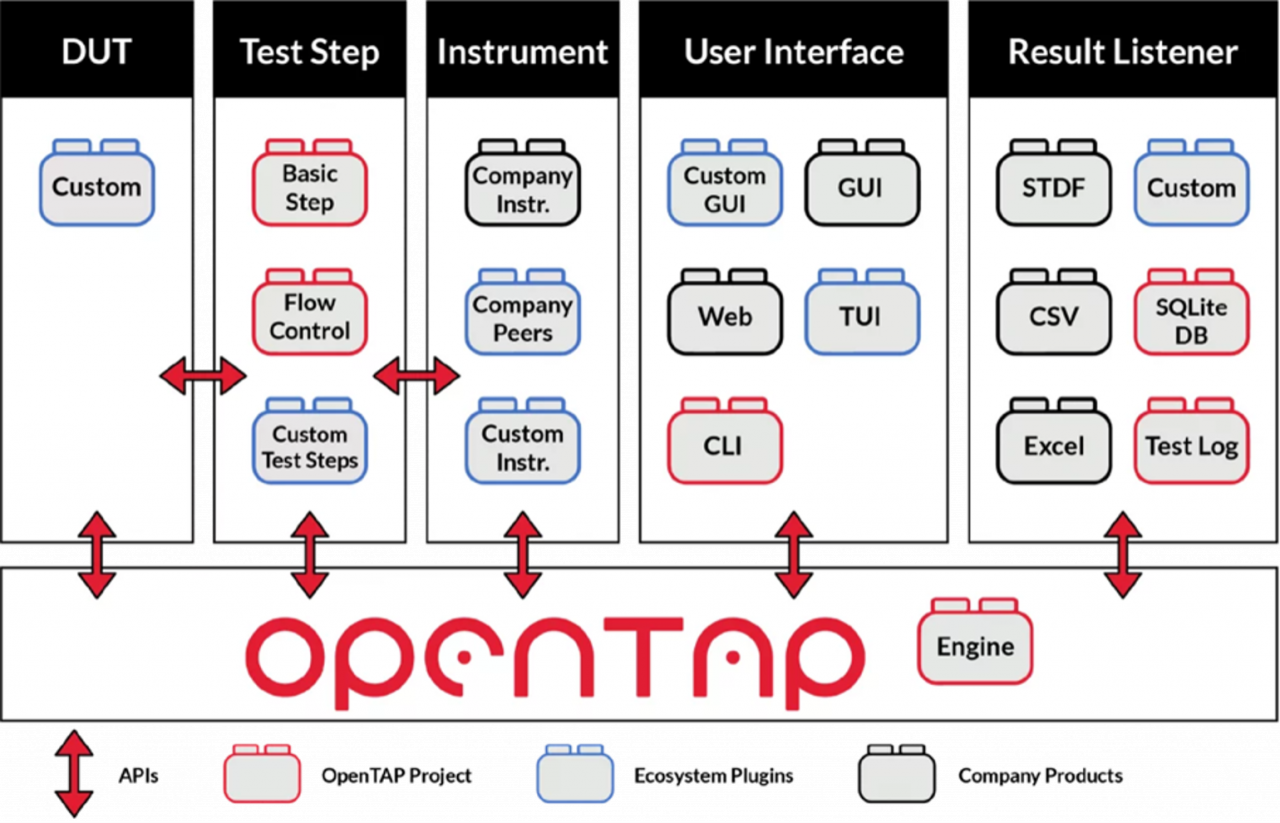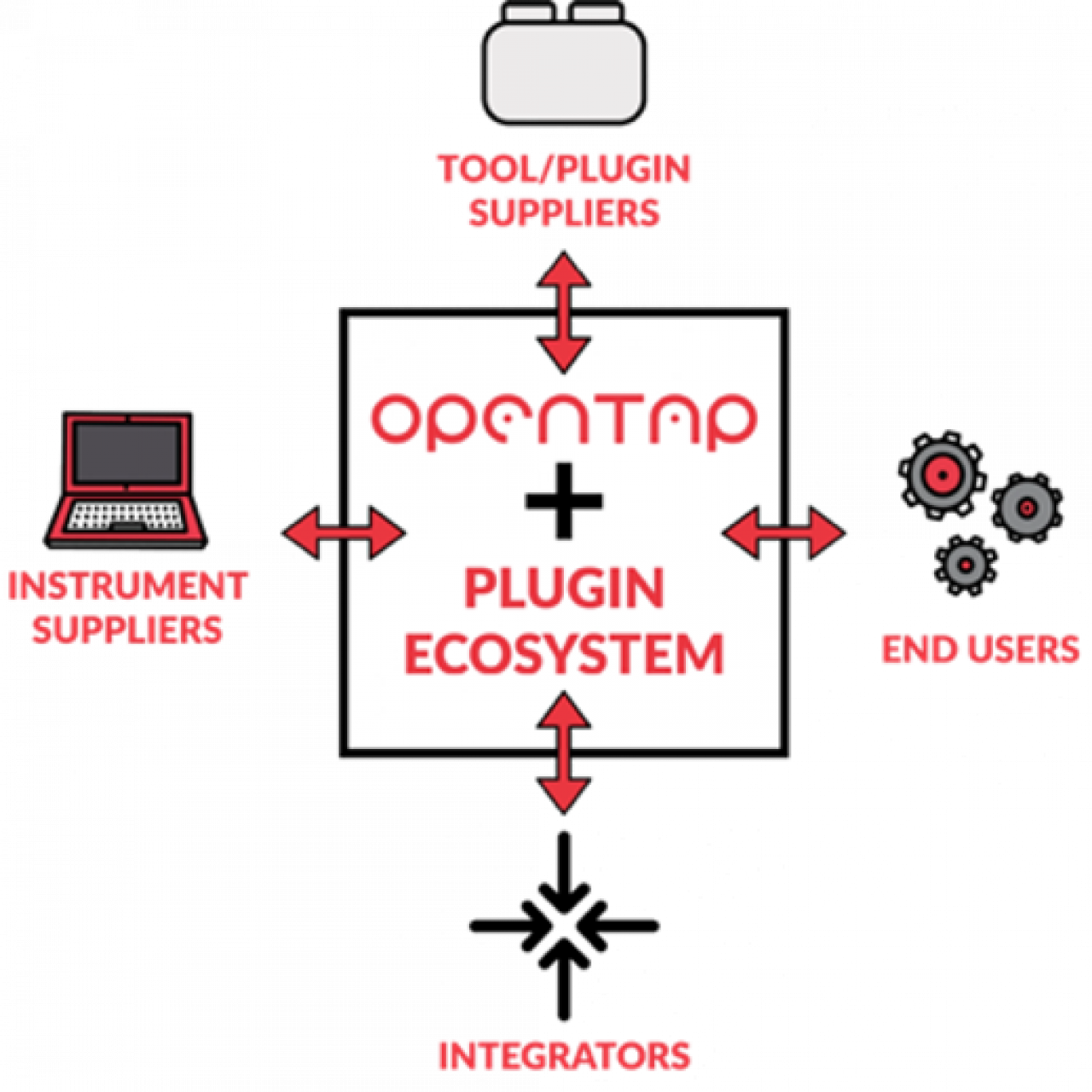This blog is the first in a series of five that examines licensing and distribution options available to developers, publishers and distributors of plugins for the OpenTAP test automation platform. These plugins are created by the gamut of OpenTAP ecosystem participants – OpenTAP users, integrators and other third-parties, as well as by Keysight – and serve to expand the functionality of the platform and accommodate different hardware configurations. If you’ve created an OpenTAP plugin, it merits thoughtful consideration of licensing and distribution options.
What is an OpenTAP plugin?
The OpenTAP platform architecture is very straightforward: the OpenTAP core engine handles scheduling and enables execution of tests, while OpenTAP plugins provide interfaces to devices under test and test instruments, encapsulate test steps, implement user interfaces and result listeners, and can even be used to support new languages (e.g., Python).

The plugin categories highlighted in Figure 1. serve a variety of purposes:
DUT
DUT (Device Under Test) plugins cover a broad and varied set of use cases, with each DUT potentially entailing unique tests and test harnesses for different device types, configurations, connectivity, etc.
Test Step
Test step plugins and flow control enable sharing of new plugins from ecosystem participants and within development groups.
Instrument
Instrument plugins help instrumentation vendors foster greater interoperability for their new and existing equipment.
User Interface
User interface plugins accompany the core OpenTAP project. Keysight offers a professional-quality GUI for creating test plans, and other UI plugins are underway from ecosystem participants.
Result Listener
Result listener plugins convert test results into familiar document formats (CSV, Excel, etc.) input into SQL and other types of databases, or raw data.

Who Creates OpenTAP Plugins?
The OpenTAP project itself includes a number of plugins, but even more plugins come from OpenTAP ecosystem participants who create them to expand functionality and add value.
Users of OpenTAP also create plugins to contain the test steps needed to test their hardware and software.
Next Time
In the next blog in the series, we dive into the nitty-gritty of software licensing and how open source licenses apply to OpenTAP plugins.
Enriching the OpenTAP Ecosystem
The OpenTAP ecosystem spans the gamut of end-users to integrators to test equipment manufacturers and beyond. New and incremental functionality from plugins is a key factor for making the OpenTAP platform attractive and helping test automation address the highly dynamic technology marketplace.
Take the first step.
Visit OpenTAP.io and join the OpenTAP Community.
· Learn about how to write and package plugins – Video: Creating OpenTAP Packages
· Check out a template for building plugins
· Explore the OpenTAP Project on GitHub
